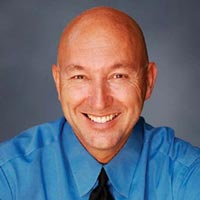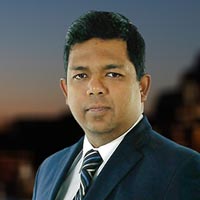G: Welcome to another episode of the less insurance dependence podcast. I am Gary Takacs, your podcast cohost. Most of you know that the less insurance depended podcast is the official podcast of RIDA – the reducing insurance dependence academy. If you would like more information about Rida, go to RID. Academy, we have an upcoming summit coming up soon after the episode is published. It is coming up in November. It is 6 hours of focused CE, all about helping you do everything necessary to successfully drop PPO plans. Well, one quick announcement, and then we will get into today’s topic. By the way, today’s topic of the episode – the title of the episode is Can I have a hygiene-driven practice if I am a PPO office? By the way, that question was submitted by one of our listeners, and we thought it would make a great topic for a podcast episode. Before we get into that episode, let me make a quick announcement. Coming up on October 20th is our next master class. This master class is 3 hours, concentrated focus on one topic. And the topic is the 1000 dollar and hour dentist. 1000 dollar and hour dentist – and during that master class, I will go over all the details of what it looks like to become a dentist that produces on average a thousand dollars an hour. By the way, that level of production of a dentist could fall into the top 1% the top 1%. So certainly, it is a level that is very high performing, but I would lie to think Naren that all of our listeners at the less insurance depended podcast can get to the top one percent. In any case, that master class is October 20th, 7 to 10 pm Eastern time; you get 3 hours of CE. If you would like o register, by the way, very inexpensive tuition, it is less than 100 dollars. I think you will find that maybe the least expensive CE you can ever participate in. if you would like to register, simply go to thriving denist.com/master class; if there is space available, be sure to register because those masterclasses do sell out even though it is a virtual class live stream. They do sell out because we run it as more of a workshop than as a lecture.
N: I love this topic, Garry. As you know, we run the group. I love dentistry, and it has close to 95 members, and one of the sentiments I hear there is that hygiene is a loss leader. Malign, I am going to do 1/3 of my practice or 20 percent, deepening on the size of the practice and the figure I grow out of that 20 percent or 30 percent of my practice which is hygiene, the more money I lose. You know, as a student of business, this just doesn’t make any sense to me. It is almost like you don’t want this thing to succeed because if it does, you are going to fail more like a business, so I love this topic, Garry.
G: Yeah, why in the world would you ever want to grow something in your business that you perceived as a loss leader.
N: Good question (laughs)
G: You essentially want to put a blanket over it and put it to sleep. Because why would I want to have something in my business that loses money. And yet, sadly, many dentists truly believe that their hygiene department is a loss leader. Well, I have the – I could not be more opposite in my thinking than that. I think of hygiene as a practice driver. It is one of the key elements of a thriving practice. Think about that for a minute.
N: Can I –
G: The more activity you have, the better it is for the practice. Because first of all, think about it – let’s step outside for just a minute. The more active your hygiene department is, the better we are at producing results for patients. We are helping our patients be healthier, we are helping them reduce future dental expenses by catching things earlier, and we are helping our patients become healthy as possible, so how about that for better motivation. But also, the more hygiene appointments we have it has a direct correlation to production on the doctor’s schedule. Because many patients, through our hygiene exams, have treatment that they need or want that then show up on the doctor’s schedule subsequently for production appointments. So the more hygiene activity we have, the busier and more productive our doctor’s schedules are. So there is a direct correlation there. Doctor Reed taught me that. Omar said Garry; this is in 1980 – he said Garry, I want you to always – I was literally green behind the ears, I was just getting started, and Omar said Garry, I want you to always remember this hygiene is a critical element of a sacksful practice. It is a critical element, and he said it with such conviction that I knew what I meant intellectually, but I really didn’t know what it meant in every facet, but he said it with such conviction that you know I wrote it down. (laughs) I have remembered it ever since, and I believe it is even stronger now, 41 years lighter that is more of a truism now than it was when I first learned I, for sure. So really, we need to shift the mindset of doctors from loss leader, to practice driver/profit center in your practice. No, let’s answer the question – Can I have a hygiene-driven practice if I am a PPO office? Okay, I have got to answer that question because it was asked, and the answer is it is very difficult because of the fees that your hygiene department can generate in your practice; it is very difficult to have a hygiene driven practice because of the absurdly low fees that you get from the PPO plans rolled into your hygiene patients. So yes, it can be hygiene-driven, but the best thing that you can do is to drop the PPO plans – so here is one. In a thriving practice, we want one-third of the total production f the office coming from the hygiene – 1/3rd. What that does is that it reduces the burden on the dentist or dentists to do all the production – that reduces it. And it makes a more balanced business, a more balanced practice. Now your hygiene department can produce that in your UCR fees but in terms of what they can actually collect, it is very low. And so you will never get to 1/3rd of collections in your office coming from hygiene. 1/3rd of collection, you might get to 1/3rr of production, but you won’t get to 1/3rd of gross production, meaning our UCR fees, but you are only going to get 1.3rd of collection. Now let’s add a dimension to it that makes it insult to injury. The dimension that I want to add is the ever-increasing hygiene wages.
N: Can you give us some examples, Garry, so that it kind of – because a lot of doctors are busy doing dentistry, they don’t sit and do the math, so I just want to understand the math a little bit.
G: So there is a simple math equation here – a smile math equation here is how do we make hygiene a profit here, and the answer is a 3rd a 3rd a 3rd. one third goes to your hygienist. One-third of their collections go to the hygenist to pay your hygienist as a producing team member.
N: Right
G: 1/3d goes to your related overhead the room supplies the equipment that you have, and you support it for about – the hygienist doesn’t do the job on her own, we have to have a hygiene scheduling coordinator that you know fills the schedule and so far that monitors and confirms and all of that, so one third in the perfect world. One-third goes to new overhead related newer hygiene department.
N: your office, your rent, your equipment, your all of that stuff?
G: Your- you know property taxes, you know if you are building—one-third of all your expenses. So one third goes to that, and then the other third lasts a 3d a 3rd a 3rd. The other third should be your profit from the hygiene department. By the way, what do I count as hygiene production? That is a very important qualifier. I count anything that happens with your hygiene patient, with the exception of the doctor exam. The doctor exam gets credited to the doctor exemption but everything else, so whether the hygienist takes the x-rays or an assistant takes the x-rays, they still go as hygiene production. If we do any auxiliary services like fluoride sealants or whitening, that goes to hygiene production. Whatever happens to the hygiene patient, in the hygiene appointment with the exception of the doctor exam. So in the perfect world, a 3rd, a 3rd, a 3rd – it is very simple math. You can check it out, and you can see how you’re doing against that, and one third goes to the hygienist; ideally, one third goes to your overhead related to the hygienist, and then one third goes to profit for you running that part of your business. However, in a PPO practice, you are never going to get there. In fact, in some cases, because of ever-increasing hygiene wages – hygiene wages are going up all wages are going up in a post-Covid era. Hygiene wages are going up, and in some cases, in some of the urban areas around the country in San Francisco in Seattle in Chicago, in New York in Miami, I have actually sensed the hinge wage per hour higher than the income that comes from a PPO patient. Actually higher.
N: So let’s assume just so you pick come random numbers, so if the hymnist is wanting to be paid 60 dollars an hour, right.
G: Let’s take more of a nationwide number, and let’s use 50 dollars an hour, and that might be it could be high depending on where you are located that could be very low but let’s use a round number of 50 dollars an hour.
N: Right, so that means the hygienist is going to get paid 8 hours – so 50 times eight is 400, so we have to make at least 1200 dollars from her 8 hours of work to, you know, make it profitable.
G: A 3rd a 3rd a 3rd goal – and let’s emphasize this. Collect, 1200 dollars a day, collect 1200.
N: In other words, if you are with a PPO plan after adjustments after the insurance write-offs, you have to collect 1200 dollars from her 8 hours of work. So what you are saying is most cases, if you are on a PPO plan, you are not going to be able to collect because of the steep discounts, the insurance write-offs.
G: I mean, look at what your pro-fee fee is, your contracted fees, and some of them don’t even pay the hygiene wage.
N: Hmmm, so that a 3rd, a 3rd a 3rd you are upside down, in fact, the loss leader that you perceive it to be. It is like if you are living in projects and the only thing you hear is gunshots and people recruiting you to join a gang, it is really hard for you to get out of it. So here, the math just does not work if you are in PPO plans. So now I understand why a lot of doctors, especially against the ones in PPO plans, say you know hygiene is a loss driver because that is their experience that is their reality.
G: And in turn, it is affecting the restorative side of the practice because you will have fewer hygiene patients, fewer exams, fewer opportunities to move to propel along in their treatment plans in what they need or want in terms of their treatment, and so it has a downward spiral effect. Remember the book good to great? Where we talk about the flywheel effect – which is where you get a 5000-pound flywheel – it is hard to get it moving, but once you get it moving, it moves on its own. You know, once you get the momentum going, so the flywheel effect on hygiene-driven practice is when it is a 3rd, a 3rd, that is a machine that just keeps moving. The opposite of it is just the downward spiral. It is a downward spiral. If you are a PPO office, so this was a long-winded way of saying how do you solve this, as in can I have a hygiene driven PPO office. Very difficult to do that. Very difficult. – I know of some, but there are consequences; oftentimes, they do a really extreme assisted hygiene model, where they bring in an assistant, and they start doing 16 patients a day instead of 8 patients a day. And if you look at that, then the math can be a little bit different, and you are going to have some expenses associated with the blending in an assistant, but oftentimes the byproduct of that is lower quality care and lower quality interaction. The patient just feels like they got hustled in and out. Now assistant hygiene can work – at least a modified assistant hygiene and work. Don’t get me wrong on that; modified assistant hygiene can work, but if you can get it to work to a 3rd a 3rd a 3rd model, you may end up with a hygiene department that you are not proud of. That you are not proud of in terms of the quality of the product, not just the clinical care, but the experience, patients start to feel like they were hustled in and out, and that is the opposite of what we want the experience to feel like, and we want the patient to feel like they got our undivided attention and that everything was an outstanding experience not just, sit down shut up and hang on. So you know, with that in mind, the answer to that question is that it can be done, but it is very different. The better answer is to successfully drop PPO plans, and you know we talked about RIDA the Rida summit coming up – you know the RIDA is an acronym it is a play on words, we want to help you get ‘Rida insurance we know that is not grammatically correct (laughs) but it does sound good. We want to help you get ‘Rida insurance, but it is also an acronym – we want to help you get rid of insurance dependency. Academy, so come join us for the summit and get on this train if you are listening to ingot this, we know you are interested in it, but there is a massive difference between education and implementation, knowledge is great, but until you apply it, you don’t get the benefit of that knowledge. So hopefully, you are all understanding the importance and that the importance of going out of network, but you have to take some action, and maybe it is Tim to get off the fence and really take some action.
N: Thank you, Garry – I really enjoyed this podcast; by the way, I am going to read a review from one of our listeners, and I want to take a moment to appreciate you, Garry, so I like listening to podcasts, on my way to work, and this one has so much relevant information that I often pause and ask Siri to remember a piece of information for me – very specific, relevant, helpful information that I would expect most consultants to charge me to get access to. I love, love, love this podcast.
G: Wow, Naren. Thank you for sharing that; that certainly makes my day, and that was the concept behind the podcast to shred useful information in a very convenient format. I love the way the doctor is – using his or her commute time to be productive.
N: That is – I didn’t know you can ask Siri to remember things! I learned something new today!
G: There you go!
N: As we come to a close, I want to take a moment to go back to the announcement that Garry made – the thriving dentist master class – the 1000$ an hour dentist. It is going to be happening on October 20th, so literally next week, and we limit the seats with 3 hours of CE; and if you want to learn more, go to thriving dentist.com/master class if you love this podcast, you are going to love this master class because Garry just gets to the point explains things in a way that is so powerful that you know the only thing you do is to implement the idea that he is sharing with you, so thank you so much Garry, and I also want to take a moment to thank our listeners. We continue to have record weeks and record months in terms of how many countries we are getting listeners from how many listeners the wonderful reviews. If you love the podcast you know, please join the rida association – reducing insurance dependence. Academy and it is free for the first year – first year membership is on us; join the summit on November 12th, and tell your friends that is a huge movement. A group of people who have said enough is enough. We are going to create our own destiny. We are going to be our own masters. We are not going to be hand cuffed by PPO plans, so come and join the journey and this transformation happening in dentistry all across the US.
 One of Gary's most significant achievements as a dental practice management coach is transforming his own practice, LifeSmiles, from one that was infected with PPO plans, no effective marketing strategy, and an overhead of 80% to a very successful dental practice that is currently one of the top-performing practices in the US.
One of Gary's most significant achievements as a dental practice management coach is transforming his own practice, LifeSmiles, from one that was infected with PPO plans, no effective marketing strategy, and an overhead of 80% to a very successful dental practice that is currently one of the top-performing practices in the US.
 As CEO of Ekwa Marketing, Naren has over a decade of experience working with dental practices and helping them attract the ideal type of patients to their practices. It is his goal to help dentists do more of the type of dentistry they love with the help and support of effective digital marketing.
As CEO of Ekwa Marketing, Naren has over a decade of experience working with dental practices and helping them attract the ideal type of patients to their practices. It is his goal to help dentists do more of the type of dentistry they love with the help and support of effective digital marketing.


